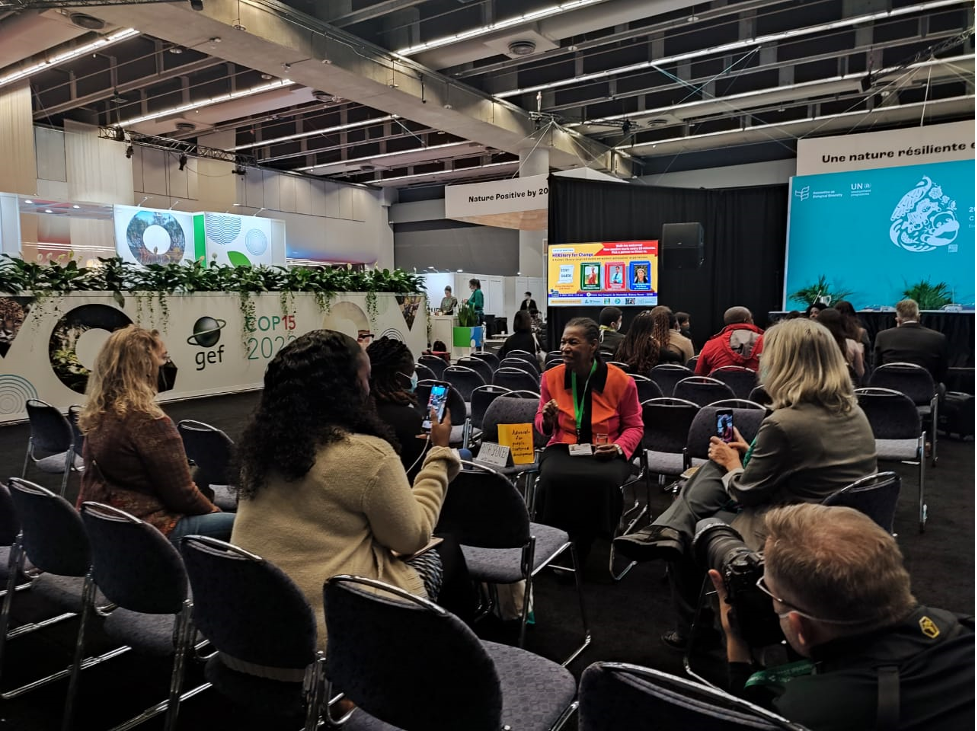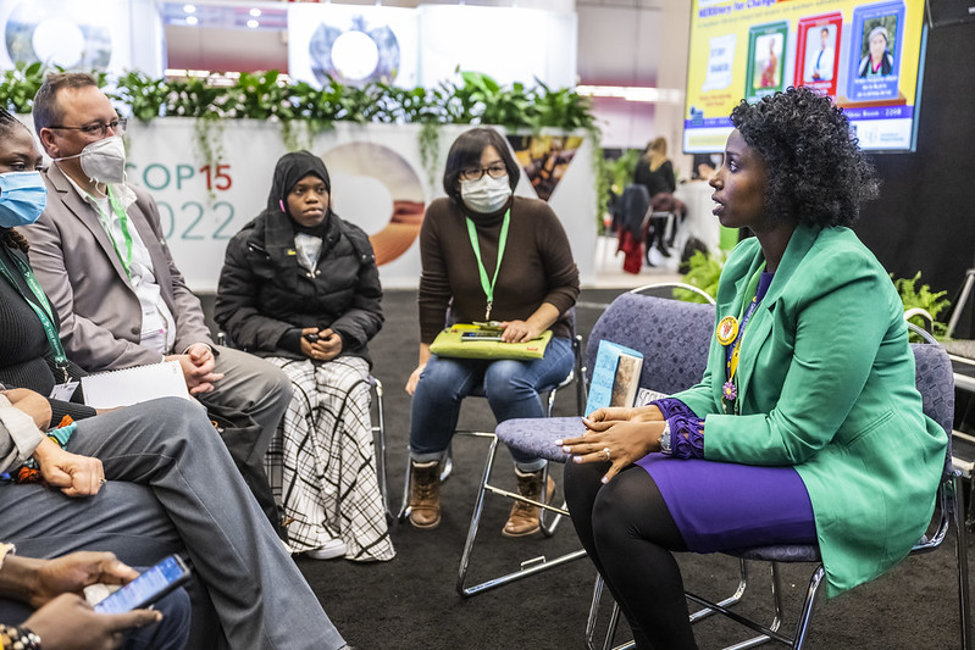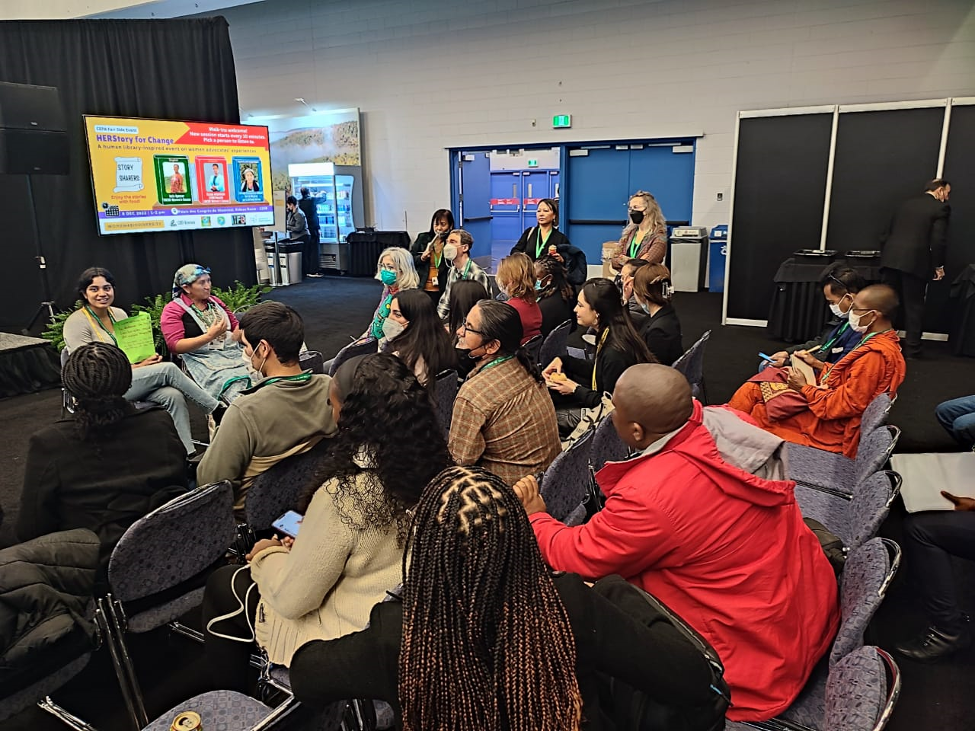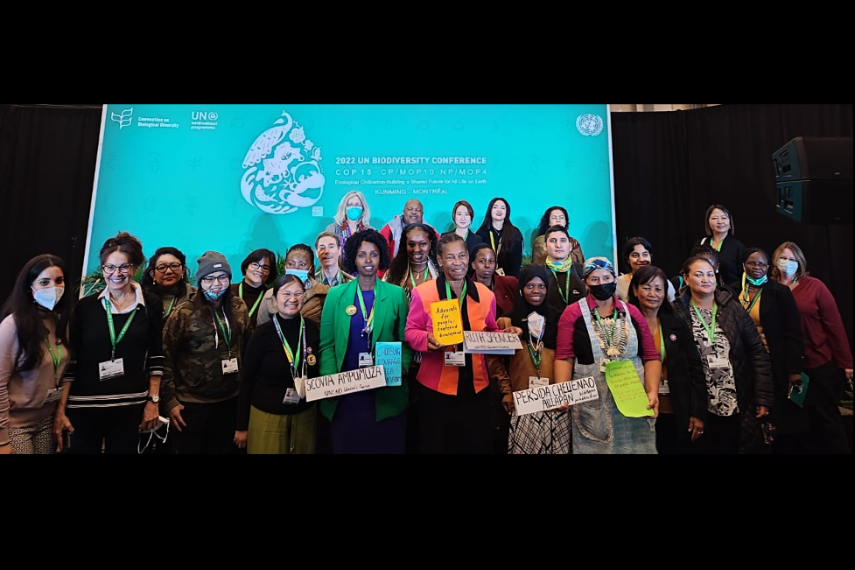To raise awareness on women’s stories in biodiversity and human rights, an awareness envisioned to lead to behaviour change, Women4Biodiversity held “HERStory for Change,” a human library-inspired event on women advocates’ experiences. The event was held as part of the Communication, Education and Public Awareness (CEPA) Fair of the Fifteenth Meeting of the Conference of Parties to the Convention on Biological Diversity (CBD COP 15) in Montreal, Canada in December last year. Ruth Spencer (Antigua and Barbuda), one of the advisors of the UNCBD Women’s Caucus and chair of the Marine Ecosystems Protected Areas Trust, Scovia Ampumuza (Rwanda), gender mainstreaming manager and volunteer facilitator of the Rwandan chapter of the Global Youth Biodiversity Network (GYBN) and Pérsida Cheuquenao Aillapán (Chile), the president of the Lafkenche Territorial Identity of the Mapuche indigenous people, were the “books” who shared their stories.
Each of the three women had a book with the title of her story beside her. The participants sat in front of each woman to listen to her story before moving on to the next. HERStory for Change had three rounds of storytelling for everyone to have a chance to hear the three women.
Ruth Spencer: Advocate for people-centred development
Spencer talked about her experience growing up in a family where both mother and father were ministers of religion, which helped her develop values “with a focus on people, which translated to my passion in life and concern for global issues.”

When she enrolled in a church college and signed up for classes, the only class available to her was one titled “Three Worlds of Development.” Taking it up deepened her knowledge of global issues such as the population crisis’ impact on poverty and unemployment and also made her appreciate over time how good policies can help lower-income countries.
Her work later on took a focus on advocating for local community-based groups to be given access to information, opportunities for inclusion and participation and greater involvement in decision-making. She adopts a gender and human rights lens in her work.
Scovia Ampumuza: Choosing Courage over Comfort
You’re a girl. You can’t do that.
These were the words Scovia Ampumuza heard years ago as a child. As she saw the differences in how parents treat sons and daughters, how women and girls experienced physical, emotional and psychological violence – she being a survivor of violence herself – and other manifestations of gender inequality.

Because of this, she became an activist. She founded a club in her secondary school, where she prioritized empowering and sensitizing young girls to have self-confidence and resilience. Later, in university, she and her colleagues structured and established the Gender Technical Working Group Committee
She later joined GYBN as she saw it as an opportunity to teach gender equality to younger generations through education and media campaigns.
Through her work and other women’s work, she is confident that “the next generation of women & girls will own lands, do free business with their inherited water bodies and have the freedom to protect and walk in their forests, and will be able to go far.”
Pérsida Cheuquenao Aillapán: Mapuche woman’s defence of territorial marine spaces
Pérsida Cheuquenao Aillapán talked about how the Mapuche indigenous people had a conflict within their maritime territory, the edge of the sea, because the Chilean State had granted a concession to sell it to private companies. The indigenous communities of southern Chile organized themselves and worked together to defend their territory and succeeded in negotiating with Congress to pass a law to protect indigenous peoples’ ancestral territories, customary use and to promote the sustainable use of biodiversity.


